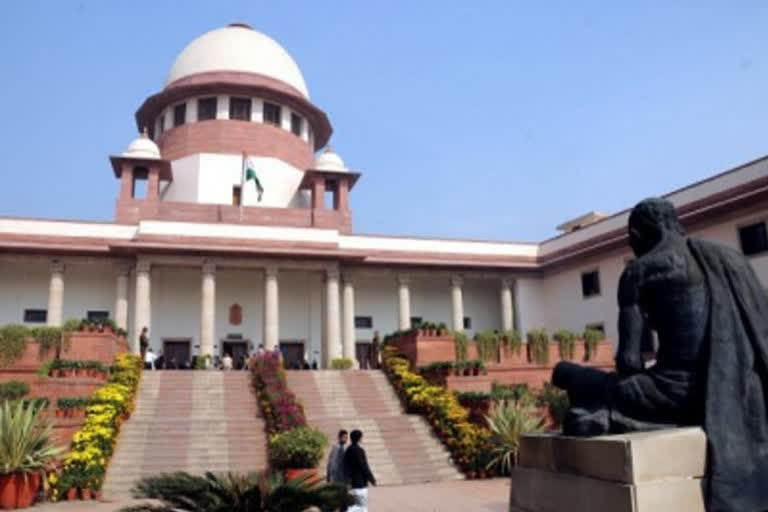New Delhi: The Supreme Court on Thursday dismissed a review petition by Lashkar-e-Taiba (LeT) terrorist Mohammad Arif alias Ashfaq against the death penalty awarded to him in connection with the 2000 attack on Red Fort attack. A bench comprising Chief Justice Uday Umesh Lalit and Justice Bela M Trivedi said that the guilt of the accused was proved after taking all the electronic records into consideration while rejecting the review petition.
Arif, from Pakistan’s Abbottabad, was held to be one of the six terrorists who had sneaked into the 17th-century monument and opened indiscriminate fire on the guards of the seventh battalion of Rajputana Rifles on December 22, 2000. Two soldiers-Rifleman Uma Shankar, and Naik Ashok Kumar, and a civilian Abdullah Thakur were killed in the attack.
The army personnel present in the fort had retaliated but the terrorists managed to escape. Soon after the attack, the Pakistan-based militant group, Lashkar-e-Taiba had taken responsibility for the attack. A first information report (FIR) was registered at the Kotwali police station based on the statement of Captain S P Patwardhan.
Also read:SC approves fresh timetable for Indian Olympic Association polls on Dec 10
In his statement, the Captain said that two persons, armed with AK 56/47 rifles entered the Red Fort from the direction of Saleem Garh gate/Yamuna Bridge and they fired at the civilian sentry Abdullah Thakur. They also killed rifleman Uma Shankar and went inside the room in the unit lines close to the office complex and fired shots at Naik Ashok Kumar, who was seriously injured and succumbed later.
The attackers later entered the ASI Museum complex and fired into the police guard room located inside the Museum. In retaliation, the quick reaction team started firing at them and they managed to escape, Captain S P Patwardhan said in the statement to police. During the investigation, police found one polythene bag, containing cash and paper slip which, they believe, must have fallen out from the pocket of one of the attackers.
They also seized currency notes and a paper slip. The police also found one phone number and with the help of technical surveillance, tracked down the accused. Four days after the incident, the Delhi Police Special Cell arrested Pakistani militant Mohammed Arif alias Ashfaq and his wife Rehmana Yousuf Farooqui following an
encounter in southeast Delhi’s Jamia Nagar area. On February 20, 2001, the police filed a charge sheet against Ashfaq and 21 others. On September 11, 2001, a special court began a trial against 11 out of the 22 accused. Eight accused were declared proclaimed offenders, while three were killed in separate encounters.
